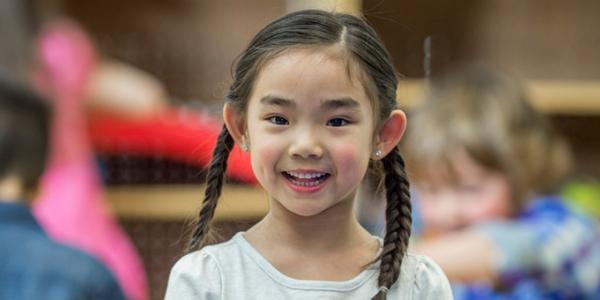Yesterday, we scrolled through images and tweets of more than 350 pediatricians heading to Capitol Hill to urge Congress to keep children safe by funding gun violence prevention research and passing gun safety policies. We share a great deal with our pediatrician friends; early childhood education is, like medicine, a discipline built on research and evidence. At NAEYC, we honor this foundation by establishing priorities and positions based on the best-available information. We are committed to being data-driven in our decision making even (and especially) when intuition and information collide, as they sometimes do, when it comes to complex issues such as play, race, and guns.
For example, it might sometimes, and to some people, feel as though a child is learning more from a worksheet she can successfully complete than from a lively round of dinosaur dress-up—but the best available evidence tells us that play is how children learn best.1 So NAEYC prioritizes environments that allow for and professional development that encourages meaningful, interactive, and engaged play in the early years.
It might sometimes, and to some people, feel as though telling a child that skin color doesn’t matter is the best way to approach conversations about race—but the best available evidence tells us that children need nuanced interactions that recognize difference without assuming deficit.2 So NAEYC prioritizes an anti-bias approach that helps adults navigate discussions in ways that allow all children to be fully seen and appreciated in the context of their families, cultures, and communities.
And it might sometimes, and to some people, feel as though more guns will make us safer—but the best available evidence tells us that more guns leads to more violence, and that child-access prevention laws, in particular, can reduce injuries and deaths.3 So NAEYC, like the American Academy of Pediatrics, prioritizes an approach to addressing violence that limits the availability of guns and other weapons, particularly when it comes to children’s access.
In 1993, NAEYC committed itself to taking action towards the achievement of two goals related to violence in the lives of children. Those two goals were: (1) to decrease the extent of violence in all forms in children’s lives by advocating for public policies and actions at the national level; and (2) to enhance the ability of educators to help children cope with violence, promote children’s resilience, and assist families by improving professional practice in early childhood programs.4
We have and will continue to work towards these goals, building on our history as a guide. We have and will continue to listen to our members, including early childhood educators in classrooms and homes across the country. We have and will continue to reflect on what is developmentally-appropriate for young and inherently curious children. We have and will continue to seek out the best available research to determine our positions— and, with recently lifted restrictions on federal funding, we hope there will be much more of it related to gun policy over time.
Therefore, given the best-available information, NAEYC’s position on violence in the lives of children includes a stand against policies that promote arming educators with guns. We believe this is consistent with our commitment as early childhood educators to ensure that children are able to “live free from violence in their homes and their communities”—as well as their schools.
While NAEYC will continue to develop resources that respond to the moment by supporting early childhood educators as they respond to violence, we are simultaneously working towards a world in which these resources will no longer have to exist. To that end, we are committed to joining in actions central to our mission in the hope that we are soon able to stop counting children who experience gun violence as part of their daily lives, and stop adding to a list of mass shootings that includes, but is not limited to, Jonesboro and Columbine, Las Vegas and San Bernardino, Sutherland Springs and Virginia Tech, Sandy Hook and Parkland. #EnoughIsEnough #NeverAgain #EndGunViolence
Lauren Hogan is the managing director of policy and professional advancement for NAEYC, in Washington, DC.

